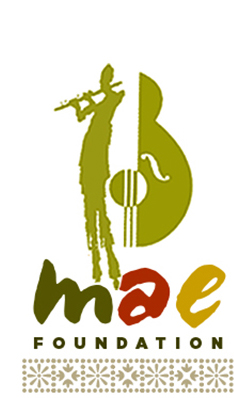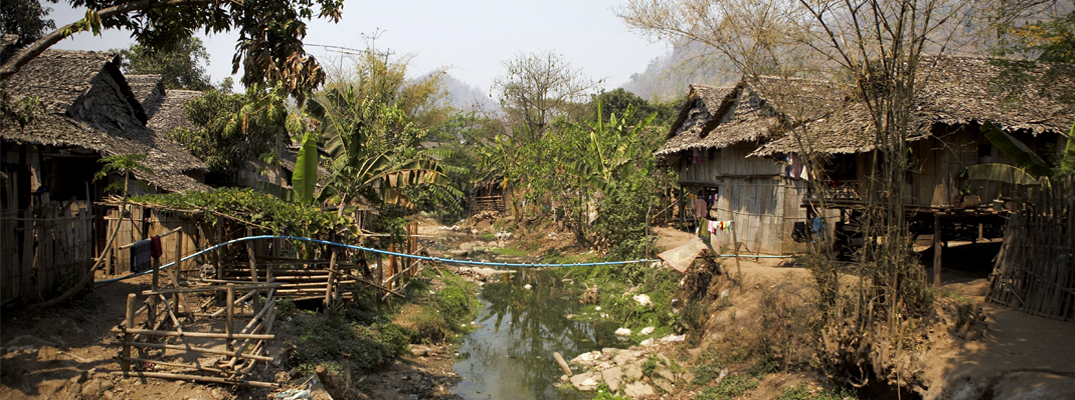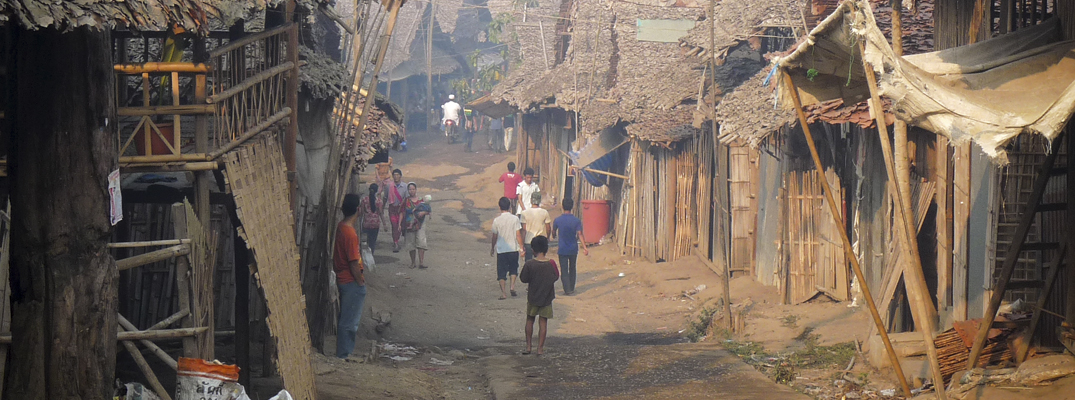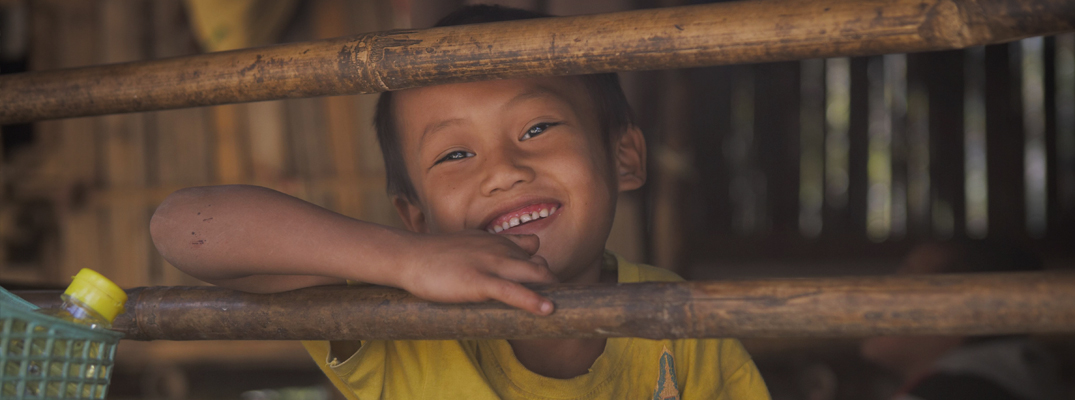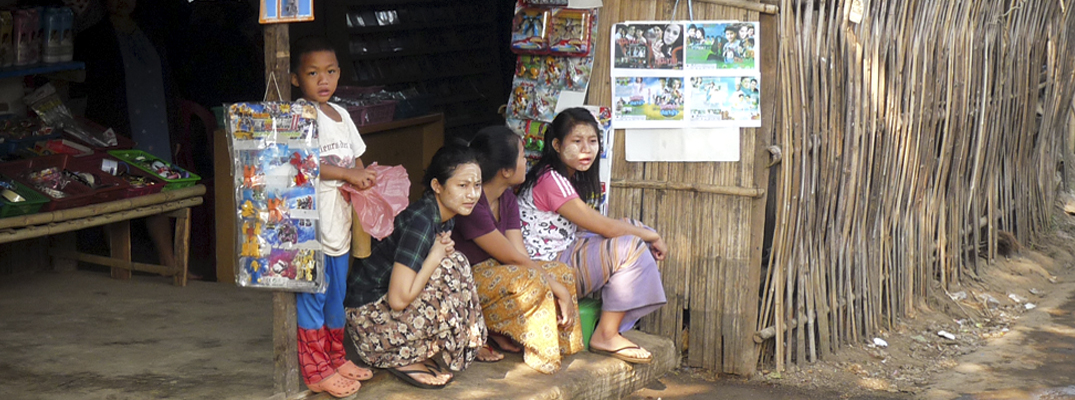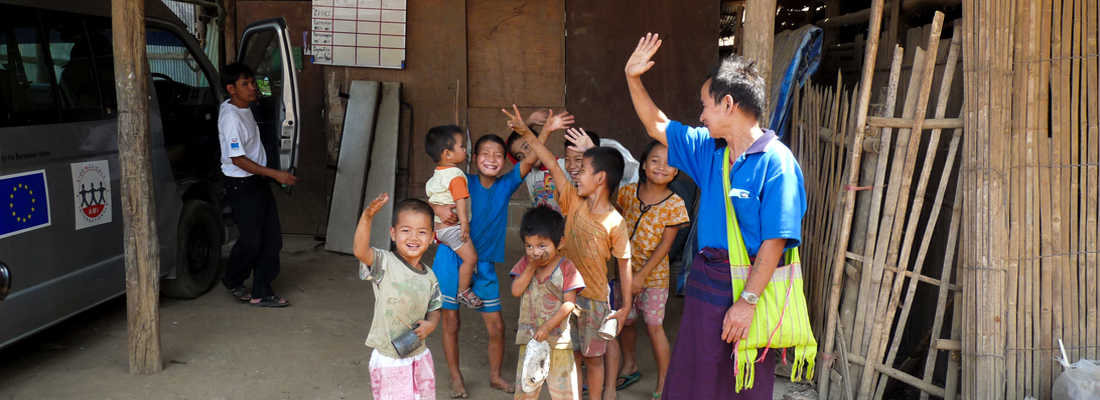MUSIC ALTERS EVERYTHING
KIDS BETWEEN COUNTRIES
If you could see for yourself the waste of human potential in the nine huge refugee camps up in the rugged mountain area along the Thai-Burmese border, it couldn’t fail to move you. There are 150,000 refugees, including many thousands of young children, in these remote hills. The camps have been growing steadily for 26 years since Burma’s vicious military regime began attacking and abusing the Karen and other peoples of southeastern Burma, forcing them to flee for their lives. The camps are, almost literally, in the middle of nowhere. The most accessible, Mae La, is 60km from the nearest town. They are run, day to day, by the refugees themselves, with vital and tireless support from the TBBC, the Thailand Burma Border Consortium, and 17 other aid organisations. But the refugees cannot help themselves by leaving the camps in search of work. They are not allowed to move on from the camps or look for local jobs, and there is no going back to the burnt villages and landmine-strewn fields of their homeland. They are effectively trapped between two countries – outside Burma, yet not really inside Thailand.
RESETTLEMENT CAN’T SOLVE THE PROBLEM
A BARE LIVING: More than 60,000 refugees from the camps have escaped to new lives, mainly in the USA, under an international resettlement scheme started in 2005. But even that has been a mixed blessing. Teachers, doctors and people with admin skills have gone, leaving gaps that are hard to fill. Despite the resettlement scheme, the number of refugees is growing, with newcomers fleeing from Burma and thousands of babies being born each year in the nine camps The refugees live on the cheapest food supplies, barely meeting minimum international nutrition standards. There is little variety and each meal costs just 15 US cents. The TBBC, which bears the main burden of feeding and housing the refugees, gets amazing value from the $250 a year it can spend on each person. But that still means finding $37m every year, despite recessions, donor fatigue and the competing needs of other human tragedies.
THE CHANCE TO GROW
Everyone can see that these friendly, resourceful people need the chance to develop their skills and talents and become more self-reliant. The crops they manage to squeeze out of the tiny riverside plots within the camps underline their determination and ingenuity. The Thai government has finally agreed that the refugees can make things to sell in order to earn some kind of income, though this must have no impact on the regional economy. No-one inside has money, but the Karen women’s group, for example, can now sell woven goods from a small shop outside the gate of the Mae La camp. Occupational training schemes now have the government’s blessing, but there are few chances for newly-trained refugees to use their skills in the camps’ subsistence economy. “Livelihood opportunities” are a priority, and new weaving, agriculture and carpentry businesses have been set up in the camps. But none of these offers the potential to bring in a real income stream from the outside world.
THE BACKGROUND TO FORMING THE FOUNDATION
WHY?: This new humanitarian and secular charity has been formed by a group of musicians and others who have recognised that music can provide a way to help the border refugees. It is based on a realistic belief in both the healing power and the earning power of music. Having been moved by the waste of so much human potential in the remote camps, our founders and patrons are determined to use their international leverage and influence to make a practical difference.
WHAT?: Drawing on contacts in every part of the music business, from film music to classical, from rock and world music to commercials, they have set their sights on three ambitious goals. They will try to focus international attention on the continuing plight of the Burmese refugees and use the resulting publicity to raise funds to improve the situation in the border camps. They will exploit business connections in the ASEAN countries, China, the UK and elsewhere to source thousands of inexpensive but well made musical instruments — and use their personal connections to bring volunteer music teachers to the camps, so every child can have access to music and the chance to learn to play. They will support the creation of workshops inside the camps where refugees can develop the skills to make musical instruments that can be exported to bring in a reliable income stream.
WHEN?: The targets are steep and the clock is ticking. The MAE Foundation has set itself the goal of bringing the first 1000 musical instruments into the camps by the end of 2011, plus the teaching and support to get this minor revolution under way. Each year, when the dry season begins, the Burmese generals send their troops to the border areas to spread murder and mayhem among the Karen peoples and their Mon, Karenni and Shan neighbours, using rape, torture and forced labour as weapons of war to impose their will. Each year another wave of frightened, homeless, hungry refugees arrives to swell the numbers in the camps. No-one in the outside world seems able to influence the Burmese regime. Nothing can stop the annual flow of needy refugees. But hopefully through this new charity, you can do something practical to help improve conditions in the camps.
HOW?: You can help bring music to the people, giving them joy and focus and a powerful weapon against the hopelessness and frustration of their plight. You can help provide tools and workshops where these industrious and energetic people can start building instruments for export and take the first steps towards partial self-sufficiency. You can help now. Give your support, your money or your time – all are equally valuable. It’s not the most obvious way to solve this kind of humanitarian problem, but, as you may know from your own life, music alters everything.
